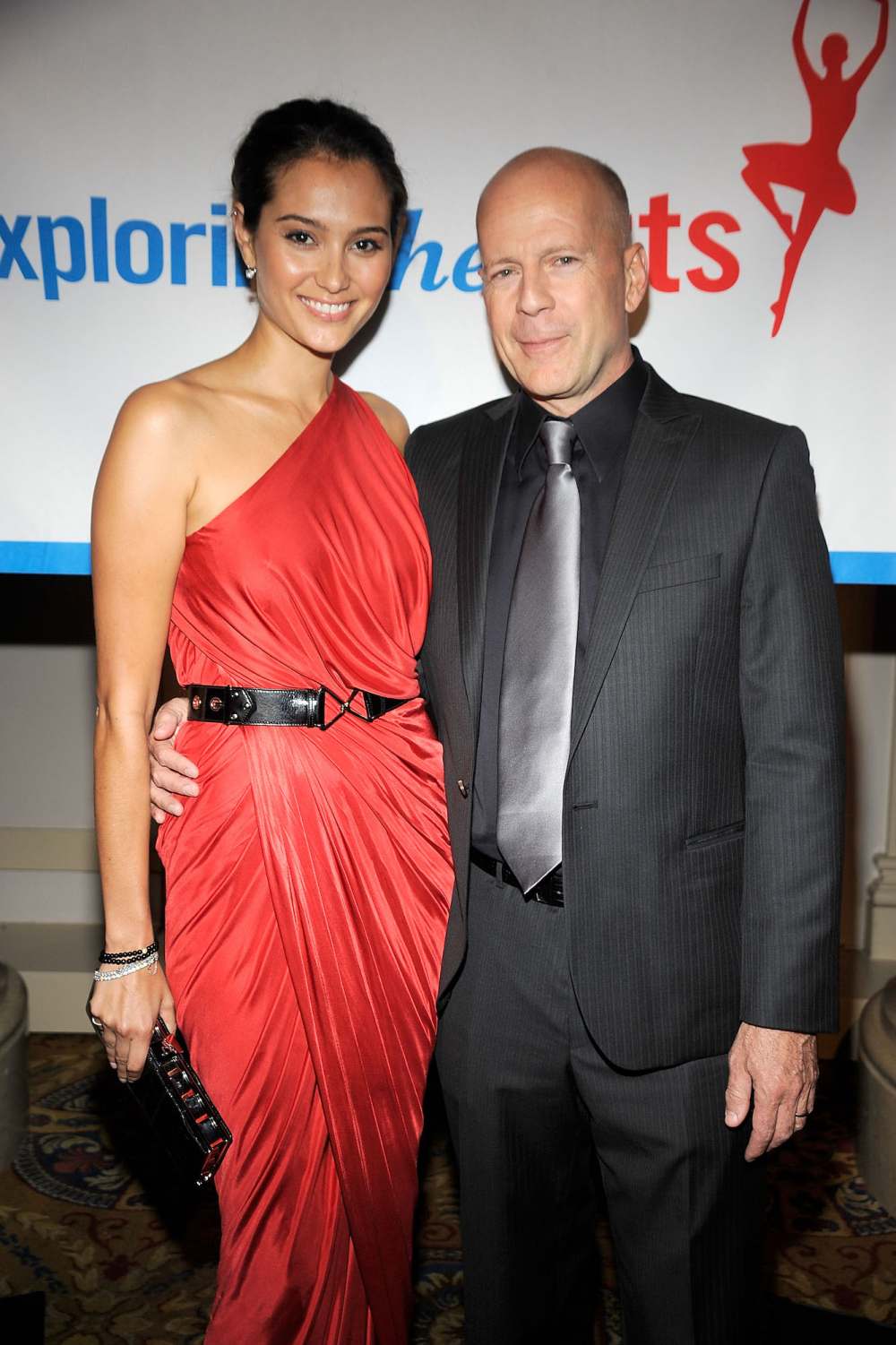Emma Heming and Bruce Willis. (Photo by Getty)
Bruce Willis’ wife Emma Heming is getting candid about the reality of having “unconditional love” for her partner amid the actor’s dementia battle.
Heming, 46, celebrated the couple’s 17th anniversary by sharing her mixed feelings about the day via Instagram on Sunday, December 29.
“17 years of us ❤️,” Heming wrote alongside a throwback photo of the couple. “Anniversaries used to bring excitement — now, if I’m honest, they stir up all the feelings, leaving a heaviness in my heart and a pit in my stomach. I give myself 30 minutes to sit in the ‘why him, why us,’ to feel the anger and grief.”
She continued: “Then I shake it off and return to what is. And what is… is unconditional love. I feel blessed to know it, and it’s because of him. I’d do it all over again and again in a heartbeat 💞”
The couple first began dating in 2007 – two years after Willis, 69, and first wife Demi Moore, 62, divorced – and exchanged vows two years later.
Willis and Heming went on to welcome two daughters together: Mabel, 12, and Evelyn, 10. The Die Hard star also shares three daughters – Rumer, 36, Scout, 33 and Tallulah, 30 – with Moore.
The Sixth Sense actor’s family shared in 2022 that Willis had been diagnosed with aphasia, a disorder that affects how a person is able to communicate.
According to Mayo Clinic, frontotemporal dementia (FTD) is an “umbrella term for a group of brain diseases that mainly affect the frontal and temporal lobes of the brain” – areas that are “associated with personality, behavior and language.”
Heming recently opened up to Town & Country about how she was handling the reality of being married to Bruce as he continues his health journey.
“Today I’m much better than I was when we first received the FTD diagnosis,” Heming told the outlet in October. “I’m not saying it’s any easier, but I’ve had to get used to what’s happening so that I can be grounded in what is, so that I can support our children. I’m trying to find that balance between the grief and the sadness that I feel, which can just crack open at any given moment, and finding joy.”

In the interview, Heming also shared an insight into why some of his early symptoms of the health condition were initially overlooked.
“Bruce has always had a stutter, but he has been good at covering it up,” she explained. “As his language started changing, it [seemed like it] was just a part of a stutter, it was just Bruce.”
Heming added that she was unaware that it could be a sign of something like dementia, given Willis’ relatively young age.
“Never in a million years would I think it would be a form of dementia for someone so young,” Heming said.
She continued, “For Bruce, it started in his temporal lobes and then has spread to the frontal part of his brain. It attacks and destroys a person’s ability to walk, think, make decisions. I say that FTD whispers, it doesn’t shout. It’s hard for me to say, ‘This is where Bruce ended, and this is where his disease started to take over.’ He was diagnosed two years ago, but a year prior, we had a loose diagnosis of aphasia, which is a symptom of a disease but is not the disease.”



